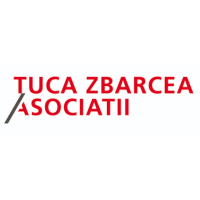

Head of legal and compliance department | Arctic



Minerva Ionita
Head of legal and compliance department | Arctic
Could you share an example of a time when you came up with an innovation that improved the way your legal team works and didn’t come at a huge cost?
I faced this ‘innovation moment’, and we called the process a ‘sharing platform’.
I started with this thought: a medium-sized in-house legal team across different locations within a large organisation. It was expected to consider enhancing collaboration, knowledge sharing, and access to legal resources without a substantial budget. We managed to achieve this by:
Internal legal platform: knowledge-sharing platform, free cost. This platform is a central repository for legal documents, templates, best practices, and legal research.
Collaborative workspaces: Implement collaborative workspaces on the platform where team members can collaborate on document drafting, share insights, and discuss legal issues. This promotes real-time collaboration and minimises the need for back-and-forth emails.
Legal periodical meeting: Dedicated moment for legal questions and answers on current topics. This fosters knowledge sharing and quick issue resolution.
Regular training sessions: Organise periodic training sessions on legal topics relevant to the organisation. In-house legal experts conduct these sessions.
Access Control: Implement access controls to ensure that sensitive or confidential legal information is only accessible to authorised personnel. This maintains security and confidentiality.
Feedback mechanism: Encourage team members to provide feedback on the platform’s content. We are using this feedback to improve the platform continuously.
Some of the benefits we encountered: the platform fosters collaboration among team members, even if they are geographically dispersed; legal knowledge and resources are readily available, reducing the time spent searching for information or recreating documents. Regular meetings help team members stay updated on legal developments and improve their skills.
Another example of innovation’ would be the standardisation of contracts. Imagine a mid-sized in-house legal team reviewing and managing many contracts and documents. The aim is to streamline their document review process. The legal team worked on standardising contract clauses and terms to make them easily reusable. This involved collaboration with other departments, such as purchasing and finance, to ensure that standard clauses met their needs.
Benefits: efficiency since the legal team can generate contracts and agreements faster, reducing turnaround times and bottlenecks.
Another benefit is accuracy: standardised templates reduce the risk of errors and inconsistencies in contracts.
What are some of the key developments (legal, geopolitical or otherwise) that have affected your business over the last year?
I can mention some general trends and topics that were prominent in the legal and geopolitical area that will continue to evolve: the ongoing pandemic has had a significant impact on businesses and the legal landscape. Issues related to workplace safety, remote work, contract disputes, and vaccination mandates have been prevalent.
Concerns about data privacy and cybersecurity have continued to grow, with new regulations and data breaches affecting businesses worldwide.
Trade tensions and tariffs between major economies have influenced global supply chains and international trade agreements.
Climate change and sustainability have been a focus of legal and regulatory changes, including initiatives related to carbon emissions, renewable energy, and environmental protection.
Geopolitical events and tensions between countries, such as trade disputes, sanctions, and territorial disputes, can significantly affect international businesses.
The legal and business landscapes have seen increased attention to issues of diversity, equity, and inclusion, with new laws and corporate initiatives addressing these concerns.
The pandemic accelerated the adoption of remote work and technology solutions. Legal considerations around data security, remote hiring, and digital transformation have become more prominent.
The healthcare sector has seen ongoing legal and regulatory changes related to telemedicine, drug pricing, and public health measures.
Government stimulus packages and economic recovery efforts in response to the pandemic have had legal implications for businesses, including tax changes and relief programmes.
How do you think the in-house legal role will evolve in the coming years?
The role of in-house legal professionals is likely to evolve in response to various factors, including advances in technology, changes in the business landscape, and shifts in legal and regulatory environments.
In-house legal teams will increasingly adopt technology solutions such as AI-powered contract review tools, legal research platforms, and data analytics to streamline their work, improve efficiency, and provide better insights to their organisations.
In-house lawyers will continue to be responsible for risk management and compliance, and they may need to adapt to changing regulatory frameworks.
Environmental, Social, and Governance (ESG) considerations are increasingly important for businesses. In-house legal professionals may need to advise on ESG-related matters and ensure compliance with relevant regulations and standards.
As businesses expand globally, in-house legal teams must navigate the complexities of international laws and regulations, requiring a broader understanding of cross-border legal issues.
There may be a growing focus on ethical and social responsibility within the legal profession. In-house lawyers may advise their organisations on ethical business practices and social impact initiatives.
For sure, in-house legal professionals will need to engage in continuous learning and adaptation to stay current with legal developments and industry-specific changes.
Overall, the role of in-house legal professionals is likely to become more dynamic, strategic, and technology-driven. They will need to be agile, adaptable, and proactive in addressing the evolving needs and challenges of their organisations in a rapidly changing legal landscape.